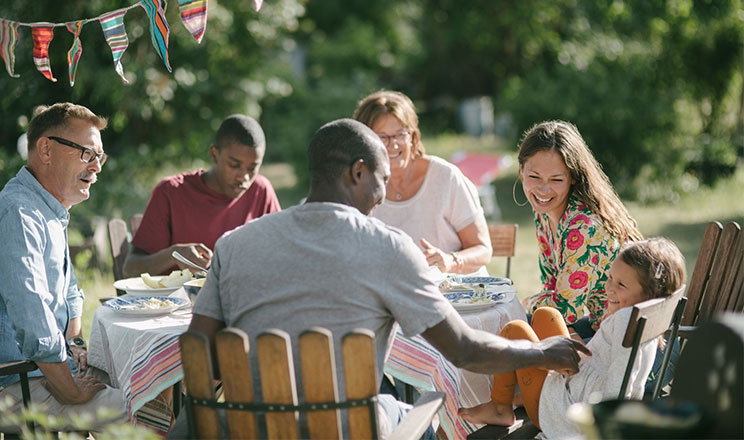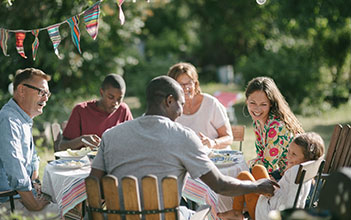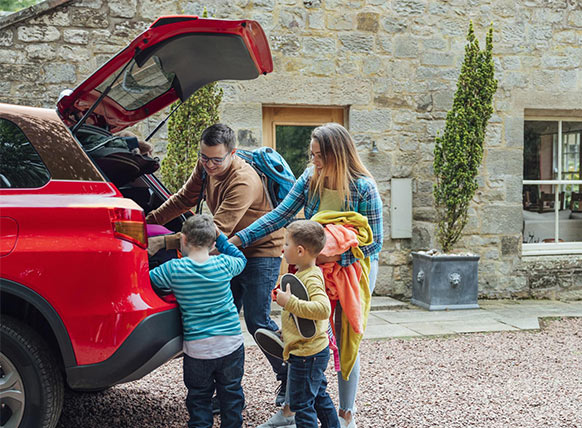Sustainable home tips as the clocks change
With the clocks changing, now is the perfect time to take action for climate and make your home more sustainable.




Each March, the clocks changing signals the start lighter and warmer days to come. So this year, why not use the extra daylight hours coming our way to help make your home more sustainable? Here are some of our suggestions on where to start.
1. Less need for heating and lighting your home
More sunlight hours mean you could turn your heating on less frequently due to the natural warmth of the sun. Plus, there’s more natural light to brighten up your home, so you can reduce the amount of time you keep your lights on by keeping your curtains and blinds open during the day.
And don’t forget to check your heating’s thermostat and timer, as well as any lighting timers, and change these to match the clock change so you don’t use more energy than you need to.


2. Enjoy the outdoors
It’s not just inside your home where you can make the most of the extra daylight, the clock change means that you’ll soon get more time to enjoy the outdoors too. This may include going for walks for those short trips instead of jumping in the car, doing more gardening or even moving some meals or meetups outside.
You could also start hanging your washing outside instead of using the tumble dryer to quickly dry your clothes and save on your energy bills.
3. Think about generating your own power
Generating your own renewable electricity to power your home is a great way to improve your home’s sustainability. By choosing renewable energy, you can reduce your carbon footprint and contribution to air pollution.
Solar panels generate renewable electricity from daylight so with the increasing hours of sunlight, you could generate even more of your own clean, renewable electricity with solar panels. Solar panels convert the sun's energy into electricity which can then be used to power your appliances, lights and more so not only will you benefit from generating your own source of renewable electricity, you can rely less on the grid to supply your electricity too.
And now could be a great time to consider installing an air source heat pump so you can benefit from a low carbon source of heating. What’s more, the Government is offering to support homeowners with the cost of installing an air source heat pump. The Boiler Upgrade Scheme offers eligible homeowners £7,500 towards the cost of a heat pump.


4. Research your travel arrangements
Many of us might be considering going away on holiday as the weather gets nicer, yet how you chose to travel has a big effect on the environment.
Air travel produces the most damaging effects on the environment so instead of flying far, stay closer to home and have a staycation in the UK to enjoy those longer daylight hours. And choose a lower carbon method of transport such as public transport, cycling or driving an electric vehicle.
In fact, switching to an electric car is a great way to help protect the environment. Electric vehicles are better for the environment than diesel or petrol fuelled cars and could save the average UK household two tonnes of CO2 emissions every year1. If you’re thinking about swapping to an electric car, then installing a home electric vehicle charger is a great idea – it’s an easy way to charge your car at home overnight so it’s ready for you in the morning.
5. Eating greener
The food we choose to eat, and how it’s grown, can have a big impact on the environment. By growing your own fruit and veg, with the help of longer daylight hours, you can cut down on food miles - there’s no sense eating strawberries flown in from Egypt when you can grow them at home or in a local allotment.
What’s more, you’ll reduce the amount of plastic packaging you use and the overall contribution your diet makes to your carbon footprint.
For more inspiration on how you can take action for climate at home, visit our sustainable homes hub.
1. Committee on Climate Change: The fifth carbon budget